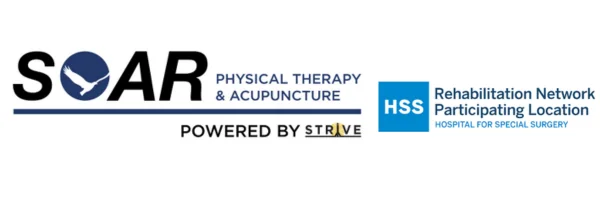Concussionin Ocean Township and Sea Girt
Concussions are a common injury but the symptoms are often disabling and difficult to manage with potential long-term repercussions.
According to Blue Cross Blue Shield's 2016 Health of America Report on concussions, the incidence of concussions among adolescents between the ages of 10-19 rose a staggering 71% between 2010 and 2015. In the same time period, there was an 81% increase in post-concussion syndrome diagnoses across all ages. While there’s growing cultural awareness of concussions and their serious health ramifications, myths persist surrounding treatment.
At SOAR, our therapists are equipped with the latest research on identifying and treating concussions. They go beyond treating the visible symptoms to evaluate and treat the emotional, vestibular, visual, cognitive, and exertional aspects.
We use evidence-based training and the most up-to-date research to provide cutting-edge treatment and ease your concerns—so you confidently and safely return to your favorite activities and hobbies.
How can I tell if I have a concussion?
One of the challenges of diagnosing concussions is that symptoms can continue to evolve past the initial incident. For some people, they appear instantly, but for others symptoms can show up hours or even days later.
Symptoms vary from person to person, but the key signs and symptoms to watch for include:
- Headache
- Ringing in the ears
- Nausea
- Vomiting
- Fatigue or drowsiness
- Blurry vision
- Confusion or feeling as if in a fog
- Amnesia surrounding the traumatic event
- Dizziness or "seeing stars"

